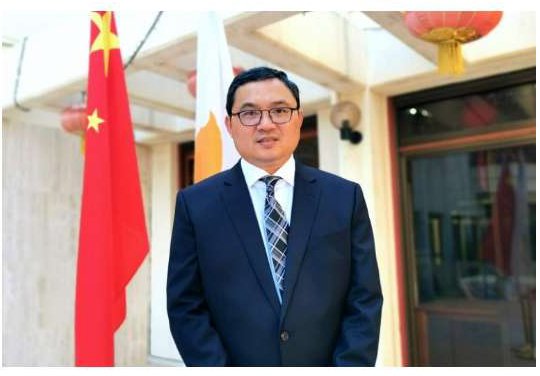No winner in a trade or tariff war
By Mr. Wang Sheng,
Chargé d’Affaires of the Chinese Embassy in Zambia
Recently, the United States has imposed tariffs on all its trading partners, including China, under various pretexts. This severely infringes upon the legitimate rights and interests of all countries, severely violates World Trade Organization (WTO) rules, severely undermines the rules-based multilateral trading system, severely damages the security and stability of the global industrial and supply chains, and severely disrupts the global economic order and hinders global economic recovery. By taking such an action, the U.S. defies the fundamental laws of economics and market principles, weaponizes tariffs to exert maximum pressure for selfish interests. This is a typical act of unilateralism, protectionism and economic bullying. China resolutely opposes such a move, which will inevitably face widespread opposition from the international community.
The higher tariffs announced by the U.S. cover over 180 countries and regions in the world, including some vulnerable economies designated as the least developed countries by the UN. The high tariffs will deal an unprecedented heavy blow to poor countries that have simple economic structure and are highly reliant on export. Spokesman for the UN Secretary-General Stéphane Dujarric warned that the trade war will adversely affect implementation of Sustainable Development Goals, and the most vulnerable countries which are the least equipped to deal with the current situation are at the epicentre of this man-made disaster. WTO Director-General Ngozi Okonjo-Iweala noted that the U.S. tariffs could lead to an overall contraction of around 1 percent in global merchandise trade volumes this year and will have substantial implications for global trade and economic growth prospects.
Pressuring and threatening are not the right way in dealing with China. China has taken and will continue to take resolute measures to safeguard its sovereignty, security and development interests. There are no winners in trade or tariff wars. Protectionism is a dead end. China urges the U.S. to immediately correct its wrong practices and properly resolve differences with its trading partners through dialogue on equal footing. No matter how the international situation changes, as the second largest economy and second largest market for consumer goods, China will continue to advance high-standard opening up, steadily expand institutional opening up in rules, regulations, management, and standards, implement high-standard policies for trade and investment liberalization and facilitation, foster a first-class market-oriented, law-based, and internationalized business environment. And China will share development opportunities with the rest of the world to achieve mutual benefits.
President Xi Jinping once used a metaphor to describe the Chinese economy, saying that it is not a pond, but an ocean. The ocean may have its calm days, but big winds and storms are only to be expected. Big winds and storms may upset a pond, but never an ocean. In the face of the tariff bullying impact of the U.S., China, as a supersize economy, has a strong ability to handle pressure. Since the U.S. started a trade war with China in 2017, no matter how much the U.S. suppressed it, China has always maintained development and progress with great resilience. At present, China’s economy is stabilizing, the economic cycle continues to improve, and the internal impetus for economic growth is significantly strengthened. Many institutions forecast that China’s GDP will grow by around 5.2% in the first quarter of 2025. At the same time, China’s new quality productive forces have developed remarkably, and many breakthroughs have been made in the fields of integrated circuits, artificial intelligence, humanoid robots, etc., demonstrating the great vitality of scientific and technological innovation. As a responsible global power, China will inject more stability into global economic development with its own stable development.
Development is an inalienable right of all countries, not the exclusive privilege of a few. The U.S. abuse of tariffs deprives countries, especially Global South countries, of their right to development. As developing countries and important members of the Global South, China and Zambia share broad consensus on pursuing national development and upholding norms governing international relations. China stands ready to work with Zambia to deepen mutually beneficial cooperation, strengthen communication and coordination in international affairs, jointly oppose zero-sum games and economic bullying and safeguard the multilateral trading system, and promote universally beneficial, inclusive economic globalization.
The year 2025 marks the beginning of implementation of the outcomes of the 2024 FOCAC Beijing Summit. At present, China-Zambia cooperation in agriculture, mining, green energy, health care, education and other fields is flourishing, and the TAZARA revitalization project has made substantial progress. China stands ready to work with Zambia to deliver on the Ten Partnership Actions for China and Africa to jointly advance modernization, including supporting Zambia in accelerating its industrialization and agricultural modernization, implementing zero-tariff treatment for 100 percent tariff lines, fostering new growth drivers such as digital, green and AI industries, so as to take the China-Zambia Comprehensive Strategic and Cooperative Partnership to a new level and contribute to building an all-weather China-Africa community with a shared future for the new area.

























